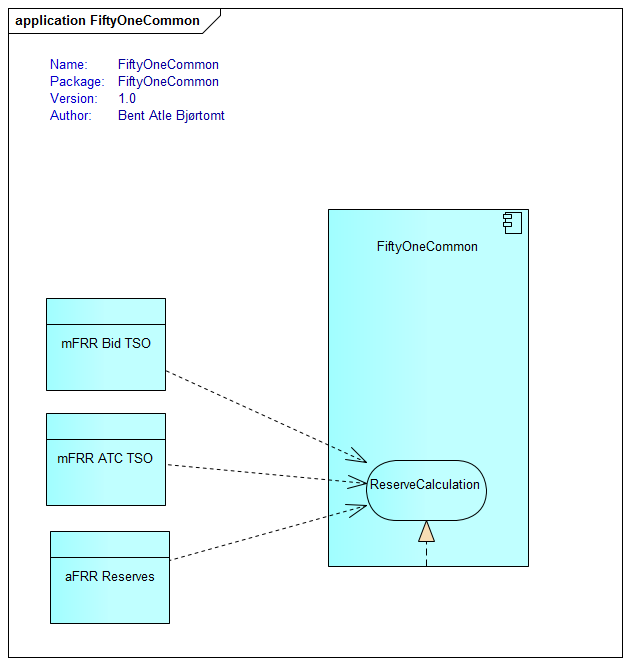Calculation of reserve situation
Introduction
For Situation awareness we need to calculate/aggregate all available reserves to have a view on the reserve situation in each bidding zone. To do this we need have mFRR (including non-standard products) and aFRR Reserves.
| Details on what and how to calculate may be subject for this documentation on a later stage. |
Messages used in this Process
Type of reserves
| Reserve category and type | Include? | Comment | Status | Notes | BO/DO |
|---|---|---|---|---|---|
Committed mFRR |
?Calculation must ensure that reserves are not counted twice. |
Ready |
mFRR Bid TSO Subtracted Activated bids →CMOL. |
CMOL |
|
Reserves from mFRR CM |
Yes |
?In some timeframe it is necessary to use obligation from CM. Also needed when we have a common mFRR CM and we reserve transfer capacity to support exchange of mFRR CM. |
Investigate |
mFRR CM equals to result of RKOM market. Allocation result?.. |
xxx |
?It is only in the local solution it will be possible to see if a BSP has fulfilled the obligation from CM. |
xxx |
xxx |
mFRR EAM bids |
||
Yes |
?Must assess how to calculate/present reserve volume if bids are available only in certain situations (conditional linked bids) or for specific processes (only scheduled activation) |
Ready? |
Same source as for Commited mFRR? |
CMOL? |
|
?Already activated bids must be subtracted |
xxx |
xxx |
Additional expected mFRR |
||
?Expected mFRR from other bidding zone/control area in Nordic synchronous area (in addition to committed mFRR) |
Investigate |
mFRR Prognosis / Forecast of mFRR Bid |
NEW? |
mFRR CM obligation/ mFRR EAM bids |
Yes |
"?Exchange of energy between bidding zones and control areas, based on ""expected"" availability in real time. This is reserves that can be exchanged between areas in addition to obligation through capacity market." |
Investigate |
What is real time. After GTC? |
xxx |
?We need to include this to have the most realistic view of the situation for operators |
|
Investigate |
xxx |
xxx |
"?We need to describe an algorithm to calculate ""expected"" available reserves (see slides later in this presentation)" |
Investigate |
|
Reserves per BZ and ATC? |
xxx |
Non-standard products |
?Non-standard products should be visually separated from standard products when presented to the operators.� |
||
xxx |
mFRR Bid TSO |
TSOs own non-standard products |
Yes |
?Will differ depending and time horizon and should be illustrated separately. Use can also depend on activation purpose.� |
|
xxx |
mFRR Bid TSO |
Shared non-standard products |
Yes |
?Will differ depending and time horizon and should be illustrated separately. Use can also depend on activation purpose.� |
|
xxx |
mFRR Bid TSO |
Other |
|||
xxx |
aFRR |
Yes |
?aFRR should be included in reserve calculation. In the future there can be changes in how reserves requirements are divided between mFRR and aFRR, and it is necessary to look at both, |
Investigate |
|
xxx |
?To include aFRR is also important in situation where aFRR is not available due to non-delivery from BSP and/or malfunction. If operator needs to do manual intervention, (e.g. change threshold for when TSO must do direct activation or other actions)? |
xxx |
|||
xxx |
?With the existing local capacity market and pro-rata activation, it can be difficult to calculate reserves on bidding zone level. But should be possible to calculate at least on control area or synchronous area level. |
xxx |
xxx |
Unresolved include directive in modules/TSO-TSO/pages/BusinessRequirementSpecification/reserve-situation/index.adoc - include::messagename-definitions.adoc[]
